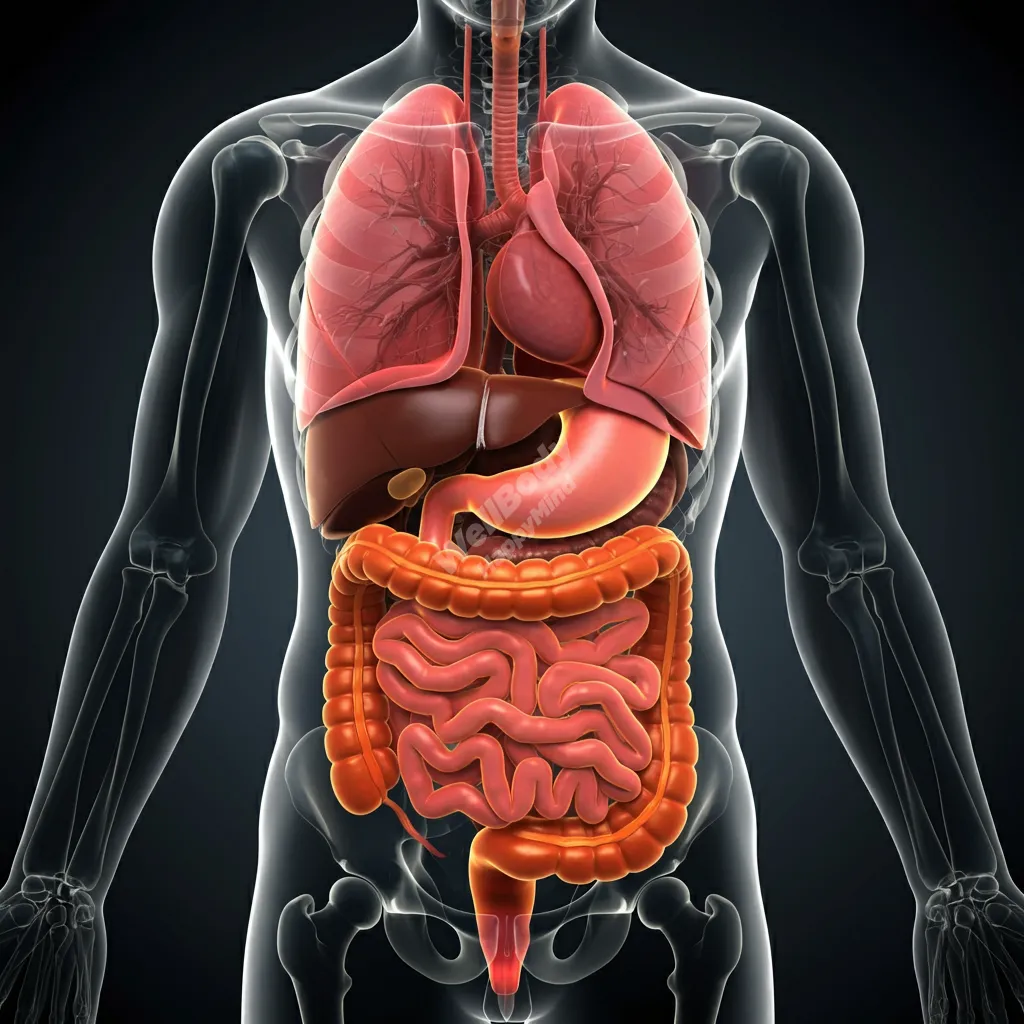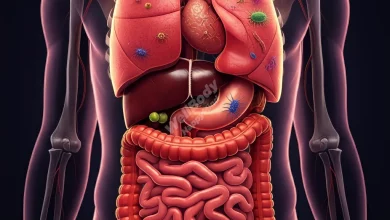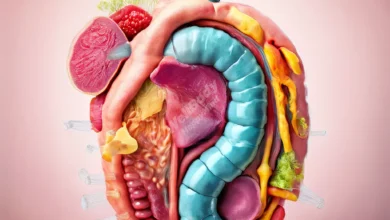Gut Microbiome Signals: Decoding Your Body’s Messages

Have you ever had a “gut feeling” about something? As it turns out, your gut might be trying to tell you more than you realize. In fact, the trillions of tiny organisms living in your digestive system play a crucial role in your overall health and well-being. Welcome to the fascinating world of the gut microbiome!
Introduction
Imagine a bustling city inside your body, teeming with life and activity. That’s essentially what your gut microbiome is – a complex ecosystem of bacteria, viruses, and fungi that call your digestive tract home. These tiny residents aren’t just passive tenants; they’re actively involved in many aspects of your health.
Understanding the signals from your gut microbiome can be a game-changer for your overall wellness. It’s like learning a new language – one that your body has been speaking all along. By tuning in to these messages, you can take proactive steps to improve your physical and mental health.
In this article, we’ll explore:
- What exactly the gut microbiome is and why it matters
- How to interpret common (and not-so-common) gut signals
- Factors that influence your gut health
- Practical ways to nurture a healthy gut microbiome
- When it’s time to seek professional help
Are you ready to decode the secret language of your gut? Let’s dive in!
What is the Gut Microbiome?

At its core, the gut microbiome is a diverse community of microorganisms that reside in your digestive system, primarily in the large intestine. This microscopic world is home to:
- Bacteria (the most abundant)
- Viruses
- Fungi
- Other microorganisms
Together, these tiny life forms create a complex ecosystem that plays a vital role in your overall health. But what exactly does this internal “city” do for you?
Functions of the gut microbiome:
- Digestion: Helps break down complex carbohydrates and fibers that your body can’t digest on its own
- Nutrient production: Produces essential vitamins like B12 and K
- Immune system support: Trains and supports your immune system to fight off harmful pathogens
- Mental health influence: Produces neurotransmitters that affect mood and cognitive function
- Metabolism regulation: Influences how your body stores fat and balances glucose levels
- Barrier function: Helps maintain the integrity of your gut lining, preventing harmful substances from entering your bloodstream
The gut microbiome doesn’t just stay in your digestive system – it has far-reaching effects throughout your body. One of the most intriguing connections is the gut-brain axis.
The Gut-Brain Connection
Your gut and brain are in constant communication, like two old friends who can’t stop texting each other. This bidirectional communication system is known as the gut-brain axis. It involves various pathways, including:
- The vagus nerve (a direct line between the gut and the brain)
- Neurotransmitters produced by gut bacteria
- Immune system signaling
- Hormones
This connection explains why stress can upset your stomach, or why certain gut issues might affect your mood. It’s a prime example of how your gut microbiome influences not just your physical health, but your mental well-being too.
Understanding this intricate relationship between your gut and the rest of your body is the first step in interpreting the signals your microbiome sends. In the next section, we’ll explore how to recognize and understand these important messages from your gut.
Signals from Your Gut: What They Mean

Your gut is constantly communicating with you, but are you listening? Learning to interpret these signals can help you better understand your body’s needs and improve your overall health. Let’s explore some common and less obvious gut signals.
Common Gut Signals
Here’s a quick guide to help you decipher what your gut might be telling you:
| Signal | Potential Meaning |
|---|---|
| Bloating | Digestive issues, food intolerance, or imbalanced gut bacteria |
| Gas | Normal digestion, but excessive gas may indicate food sensitivities or bacterial overgrowth |
| Abdominal pain | Could range from mild indigestion to more serious conditions like IBS or inflammatory bowel disease |
| Changes in bowel movements | May indicate changes in diet, hydration, or potential digestive issues |
Remember, occasional discomfort is normal, but persistent symptoms should be discussed with a healthcare professional.
Less Obvious Signals
Your gut microbiome’s influence extends beyond your digestive system. Here are some surprising ways your gut health might manifest:
- Mood changes: Feeling unusually anxious or depressed? Your gut bacteria play a role in producing mood-regulating neurotransmitters.
- Skin issues: Conditions like acne or eczema may be linked to gut inflammation.
- Energy levels: Chronic fatigue could be related to nutrient absorption issues in your gut.
- Sleep disturbances: An unhealthy gut might disrupt your body’s production of sleep-regulating hormones like melatonin.
By paying attention to these signals, you can gain valuable insights into your gut health and overall well-being.
Factors Affecting Gut Health

Now that we understand the importance of gut health, let’s look at the key factors that influence your gut microbiome:
Diet: The Foundation of Gut Health
What you eat has the most significant impact on your gut microbiome. Here’s a rough breakdown of dietary influences:
- Whole, plant-based foods (50%): Fruits, vegetables, legumes, and whole grains
- Fermented foods (20%): Yogurt, kefir, sauerkraut, kimchi
- Lean proteins (15%): Fish, poultry, lean meats
- Processed foods (10%): Should be limited for optimal gut health
- Probiotic supplements (5%): Can be beneficial, but whole foods are preferable
Stress: The Silent Gut Disruptor
Chronic stress can significantly alter your gut microbiome composition. It can lead to increased gut permeability (often called “leaky gut”) and may exacerbate digestive issues. Stress management techniques like meditation, deep breathing, or yoga can help maintain a healthy gut-brain connection.
Sleep: Your Gut’s Restoration Period
Quality sleep is crucial for maintaining a healthy gut microbiome. During sleep, your gut undergoes important maintenance and repair processes. Poor sleep habits can disrupt this cycle, potentially leading to gut issues and other health problems.
Exercise: Moving for Microbial Diversity
Regular physical activity has been shown to increase the diversity of gut bacteria, which is generally associated with better health outcomes. Even moderate exercise, like a daily 30-minute walk, can have positive effects on your gut microbiome.
Medications: Double-Edged Swords
While often necessary for treating various conditions, some medications (particularly antibiotics) can significantly alter your gut microbiome. If you’re prescribed antibiotics, consider asking your doctor about ways to support your gut health during and after treatment.
Understanding these factors empowers you to make informed decisions about your lifestyle and its impact on your gut health. In the next section, we’ll explore practical ways to nurture a healthy gut microbiome based on this knowledge.
Nurturing a Healthy Gut Microbiome

Now that we understand the importance of gut health and the factors that influence it, let’s explore practical ways to support your gut microbiome. By making simple changes to your diet and lifestyle, you can create an environment where beneficial gut bacteria thrive.
Dietary Recommendations
What you eat plays a crucial role in shaping your gut microbiome. Here are some gut-friendly food choices to consider:
- Fiber-rich foods: These provide “food” for your gut bacteria
- Fruits (e.g., apples, berries, bananas)
- Vegetables (e.g., broccoli, carrots, spinach)
- Whole grains (e.g., oats, quinoa, brown rice)
- Legumes (e.g., lentils, chickpeas, beans)
- Fermented foods: These contain live beneficial bacteria
- Yogurt (look for “live active cultures”)
- Kefir
- Sauerkraut
- Kimchi
- Kombucha
- Prebiotics: These substances feed your good gut bacteria
- Garlic
- Onions
- Leeks
- Asparagus
- Bananas
- Probiotics: These are live beneficial bacteria
- Found in fermented foods
- Can also be taken as supplements (consult with a healthcare provider first)
Remember, diversity is key when it comes to gut health. Aim to eat a wide variety of plant-based foods to support a diverse microbiome.
Lifestyle Changes
Your gut health isn’t just about what you eat. Here are some lifestyle changes that can make a big difference:
1. Stress management techniques
Chronic stress can negatively impact your gut health. Try incorporating these stress-busting activities into your routine:
- Meditation: Even 5-10 minutes a day can help reduce stress levels.
- Deep breathing exercises: Practice taking slow, deep breaths when you feel stressed.
- Yoga: Combines physical activity with mindfulness for a double benefit.
- Regular exercise: Helps reduce stress and promotes gut health directly.
2. Improving sleep habits
Quality sleep is crucial for gut health. Here are some tips for better sleep:
- Stick to a consistent sleep schedule
- Create a relaxing bedtime routine
- Avoid screens for at least an hour before bed
- Keep your bedroom cool, dark, and quiet
3. Regular exercise routines
Physical activity benefits your gut in multiple ways:
- Increases the diversity of gut bacteria
- Reduces stress
- Improves sleep quality
Aim for at least 150 minutes of moderate-intensity exercise per week. This could be brisk walking, swimming, cycling, or any activity you enjoy.
When to Seek Professional Help

While many gut issues can be managed through diet and lifestyle changes, some situations require professional medical attention. Here’s when you should consider consulting a healthcare provider:
Persistent symptoms
If you experience any of the following symptoms for an extended period, it’s time to seek help:
- Chronic abdominal pain
- Persistent bloating or gas
- Frequent diarrhea or constipation
- Unexplained weight loss
- Blood in stool
Remember, early intervention is key in managing many gut-related conditions.
Diagnostic tests for gut health
Your healthcare provider may recommend various tests to assess your gut health, including:
- Stool tests: To check for infections or imbalances in gut bacteria
- Blood tests: To look for signs of inflammation or celiac disease
- Breath tests: To diagnose conditions like small intestinal bacterial overgrowth (SIBO)
- Endoscopy or colonoscopy: To visually examine the digestive tract
Types of specialists to consult
Depending on your symptoms and initial assessments, you might be referred to:
- Gastroenterologist: Specializes in digestive system disorders
- Registered Dietitian: Provides expert nutrition advice
- Naturopathic Doctor: Offers holistic approaches to gut health
- Functional Medicine Practitioner: Focuses on identifying root causes of health issues
Remember, your gut health is an essential part of your overall well-being. By paying attention to your body’s signals and taking proactive steps to support your gut microbiome, you’re investing in your long-term health and happiness.
The Future of Gut Health Research
As our understanding of the gut microbiome grows, so does the potential for groundbreaking discoveries and innovative treatments. Let’s explore some exciting developments in gut health research.
Emerging studies and discoveries
The field of gut microbiome research is rapidly evolving, with new findings emerging regularly. Scientists are uncovering fascinating connections between our gut bacteria and various aspects of our health.
For instance, recent studies have shown links between gut microbiome composition and conditions such as:
- Parkinson’s disease
- Autism spectrum disorders
- Alzheimer’s disease
- Certain types of cancer
Researchers are also exploring how the gut microbiome influences our immune system, metabolism, and even our behavior. These discoveries are opening up new avenues for treating a wide range of health issues.
Potential applications in personalized medicine
The future of gut health research holds exciting possibilities for personalized medicine. Here are some potential applications:
- Tailored probiotics: Customized probiotic treatments based on an individual’s unique gut microbiome profile
- Microbiome-based diagnostics: Using gut bacteria analysis to predict disease risk or diagnose conditions earlier
- Precision nutrition: Developing personalized diet plans based on how an individual’s gut microbiome responds to different foods
- Fecal microbiota transplants: Refining this treatment for conditions beyond C. difficile infections
- Psychobiotics: Developing probiotics that can positively influence mental health through the gut-brain axis
As research progresses, we may see a shift towards more personalized, microbiome-focused approaches to health and wellness.
Conclusion

Throughout this article, we’ve explored the fascinating world of the gut microbiome and its profound impact on our overall health. Let’s recap the key points:
- Your gut microbiome is a complex ecosystem that plays crucial roles in digestion, immunity, and even mental health.
- Gut signals, both common and subtle, can provide valuable insights into your health.
- Diet, stress, sleep, exercise, and medications all significantly influence your gut health.
- Nurturing a healthy gut microbiome involves a balanced diet rich in fiber and fermented foods, along with positive lifestyle habits.
- Persistent gut issues should be addressed by healthcare professionals.
- The future of gut health research promises exciting developments in personalized medicine and treatment options.
As we’ve learned, listening to your gut isn’t just a figure of speech – it’s a vital aspect of maintaining good health. Your gut microbiome is constantly sending you signals, and by paying attention to these messages, you can take proactive steps towards improving your overall well-being.
Remember, every small change counts. Whether it’s adding more fiber to your diet, practicing stress-reduction techniques, or improving your sleep habits, these actions can have a significant positive impact on your gut health.
So, are you ready to start your journey towards a healthier gut? Here’s your call to action:
- Pay attention to your body’s signals
- Experiment with gut-friendly foods
- Incorporate stress-reduction techniques into your daily routine
- Prioritize good sleep habits
- Stay active with regular exercise
By implementing these gut-friendly habits, you’re not just improving your digestive health – you’re investing in your overall well-being. Remember, a happy gut often means a happier, healthier you!
Your gut has been speaking to you all along. Now that you understand its language better, it’s time to listen and respond. Here’s to your health, from the inside out!



